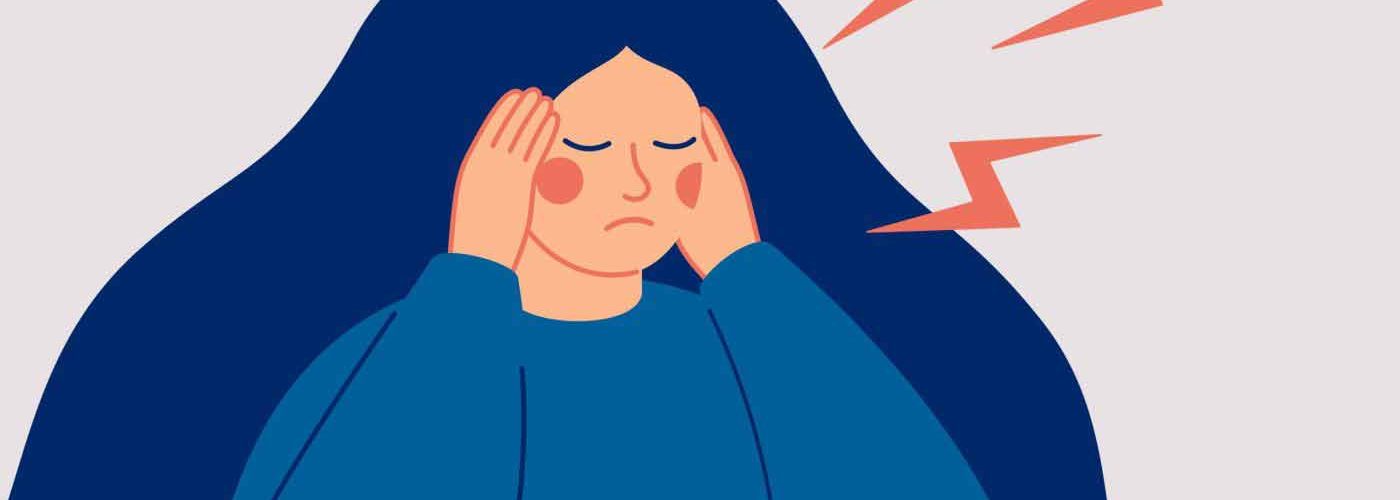

The day-to-day experience of pregnancy can come as a bit of a mixed blessing for many women. Instead of the overall feeling of well-being and that famous glow, some of us are met with bouts of sickness, exhaustion and pregnancy headaches. It’s estimated that almost four out of ten women have this common symptom during pregnancy. The good news is that having a headache during pregnancy is rarely a sign of any serious problem, and even pregnancy migraines can be managed with simple solutions.
In this IVI article, we consider what causes headaches in pregnancy and what you can expect at different stages. We also offer some advice on how to avoid headaches, how to deal with them if they do occur in a way that is safe for your pregnancy, and how to recognise when your headache could signal something that requires medical attention.
Common headache symptoms during pregnancy
Most of the headaches you may experience during pregnancy are what’s known as primary headaches – that is, the pain happens on its own. It is not the result of any underlying problem or complication. Primary headaches can take the form of tension headaches, cluster headaches or attacks of migraine. Symptoms can be felt as:
- Throbbing or pulsating pain in your head
- Sharp pain behind one eye or both eyes
- A non-specific dull ache
- Severe pain on one or both sides of your head.
If you have a migraine, other symptoms can include flashing lights, blind spots, nausea and vomiting. Unpleasant as they are, these symptoms do not harm your baby or cause any danger to your pregnancy, and in many cases, they clear up after the first trimester. For people who habitually suffer from migraines, being pregnant can even offer a period of respite, reducing their frequency.
What causes pregnancy headaches?
During early pregnancy, you could easily have headaches because your body is going through so many changes. These include a higher volume of blood, alterations to your normal hormonal balance and changes to your weight. Other symptoms associated with pregnancy can also trigger a headache, such as:
- Morning sickness, which can disrupt your metabolism
- Dehydration
- Changes to vision and sensitivity to light
- Stress
- Lack of sleep
- Unaccustomed lack of exercise
- Low blood sugar levels associated with poor nutrition.
You may even find that if you follow the advice of some healthy living experts and give up coffee during your pregnancy, you experience withdrawal symptoms in the form of a headache. You may also have changed your eating habits, avoiding foods that you normally enjoy and substituting others that could cause a reaction. Some common culprits of food-related headaches are chocolate, dairy and cheese, yeast and tomatoes.
Headaches later in the second and third trimesters can have different causes, such as weight gain, changes in posture, lack of sleep and muscle strain.
Migraines in pregnancy
If you usually have migraines and continue to experience them during pregnancy, you should take pre-emptive action and talk to your doctor or midwife about how to deal with them. This is because some medication usually recommended for migraines is not advisable when pregnant. So, it’s good to have an action plan in advance, understand which medications are safe, and consider other methods of dealing with a bout of migraine.
Normally, a migraine during pregnancy does not cause any harm to your baby. Still, occasionally it can be a sign of high blood pressure so it’s always worth consulting your medical advisor.
Avoiding pregnancy headaches and treating them
It can take some time to adjust to your new situation and understand what is likely to trigger a headache or migraine, but once you do, it’s easier to draw up strategies to avoid them happening. For instance, you may find that some foods, lack of sleep or stress are all likely to trigger an episode.
Medication for a headache in pregnancy
Some medications can help if you have a headache during pregnancy, but others are best avoided. The NHS advises that taking paracetamol is safe but recommends that you take the smallest amount and for the shortest time possible for it to treat your headache effectively. The NHS and other medical authorities advise that you should avoid any containing codeine and non-steroidal anti-inflammatory drugs such as ibuprofen or aspirin.
Lifestyle measures to avoid headaches during pregnancy
Other measures to avoid headaches include lifestyle issues. You should make sure you get enough sleep, a moderate amount of exercise and, if at all possible, avoid becoming stressed (easier said than done, we know). Pay attention to a well-balanced diet and – this should be an easy one – drink plenty of water.
Acupuncture has been recommended by the National Institute for Health and Care Excellence (NICE) for people suffering from migraines. It is also believed to help with back pain for pregnant women. If you decide to go down this route, make sure that your practitioner is fully qualified and aware that you are pregnant, since some acupuncture points are not considered safe for pregnant women.
When to seek medical help for a pregnancy headache or migraine
Even though most headaches are harmless, there are some circumstances when you should contact your doctor, maternity unit or NHS 111, to be safe. These include if you have:
- A severe headache
- Eyesight difficulties such as blurred vision or flashing lights
- Vomiting that is out of the typical pattern of morning sickness
- Any sudden swelling of your hands, feet and ankles, or face.
These symptoms can be a sign of high blood pressure or pre-eclampsia which, although many cases are mild, can cause serious problems for you and your baby.
As long as you follow the diet, exercise and hydration advice and know when to consult your doctor, pregnancy headaches are not a cause for serious concern and can be prevented or treated successfully with the proper care.





Comments are closed here.